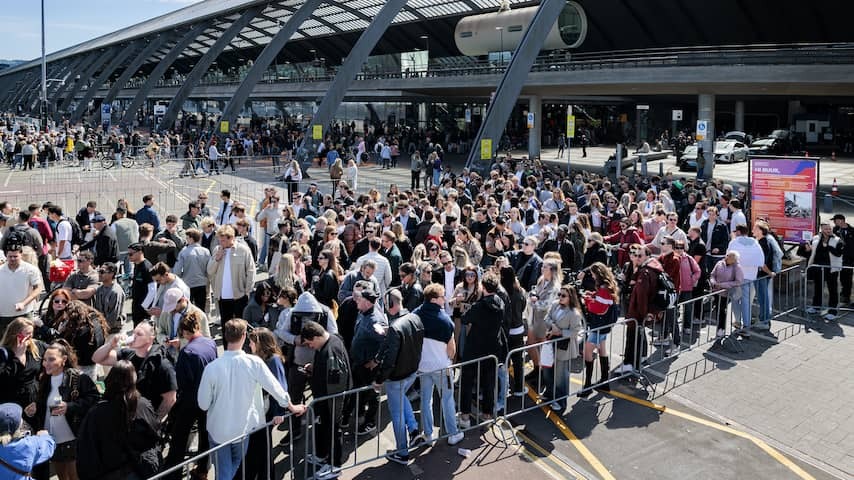
The French Prime Minister proposes scrapping two public holidays to reduce the large budget deficit. France also needs much more money for defense, just like the Netherlands. The question is whether such a measure would benefit the Netherlands much.
Criticism of the French Prime Minister François Bayrou’s plan is coming from all sides. France needs to save a total of 44 billion euros to bring the budget deficit below the European standard. The Prime Minister proposes several measures, but the abolition of two public holidays is the most striking.
While France is trying to get the budget deficit under control, the country has to spend much more on defense. All NATO countries are increasing spending, as they agreed at the recent summit in The Hague.
The idea of scrapping a public holiday because of higher defense spending is not new. Denmark stopped Store Bededag (Great Prayer Day), which had existed since 1686, for that reason in 2024. The Danes also had to make sacrifices for the war in Ukraine, according to Prime Minister Mette Frederiksen.
Could it be that Dutch people will also have to make such sacrifices? Can public holidays disappear?
‘Every public holiday you get off is a gift’
“What I always find interesting is that people think they have the right to be off on public holidays,” says labor law attorney Suzanne Meijers, who assists employers in difficult situations.
“The fact that a public holiday is automatically a day off is not enshrined in law,” says Meijers. Such things are laid down in collective labor agreements or employment contracts. “The fact is that every public holiday for which you get time off is a gift.”
The French Prime Minister wants to get rid of a day off on Easter Monday, among other things. Meijers understands why the French Prime Minister is suggesting that idea. “Employers don’t have to give time off then.” That means economic growth.
“Employers in the Netherlands will not make themselves popular with it,” thinks Meijers. In the current tight labor market, where staff is scarce and employees can make more demands, such a political proposal is therefore unlikely.
Queen’s Day had to take the wind out of the sails
What often comes back is that the Netherlands has exceptionally few public holidays. “The Netherlands has little to skimp on compared to the rest of Europe,” says director Saskia Boumans of Wetenschappelijk bureau de Burcht. She is doing promotional research on the labor market. “Discussions such as in France have not taken place in the Netherlands.”
“You do have that long-standing discussion about May 5,” says Boumans. The question of whether Dutch Liberation Day should be an annual public holiday remains a point of contention. Some are against it because there are already many days off during that period. For the same reason, the French Prime Minister wants to abolish the French Liberation Day on May 8.
“A little over a hundred years ago there was the discussion about May 1, Labor Day,” says Boumans. “The labor movement, which also included communists and revolutionaries, wanted a day to celebrate the worker. That was not necessarily the intention in a Calvinist country like the Netherlands. Queen’s Day was then introduced to take the wind out of that discussion.”
That is why May 1 is not a public holiday in the Netherlands, unlike many other Western European countries.
What does Boumans think of the French plan? “The idea is that if people work two days more without extra salary, there will be more output for the same money. The hope is also that the economic effect will be greater, because there are already several days off in May.”
“Government spending would also decrease. At all kinds of workplaces in the public sector, such as in hospitals, work still has to be done during public holidays. On such a public holiday, an employee effectively costs double: the civil servant who is free and the replacement who fills the free spot. Perhaps that replacement even costs more thanks to a holiday allowance. I wonder whether such a measure really yields so much in an office environment.”
Discussion about defense spending is starting
“In principle, an extra day of work has an effect on your economy,” says chief economist Bert Colijn of ING. “But a lot of people already work on a public holiday, so that reduces it again.”
Colijn cites a study by the European Central Bank (ECB) from 2004. Because 2004 was a leap year and some public holidays fell on the weekend, the year had many working days. As a result, the economy grew. According to the ECB, an extra working day resulted in approximately 0.1 percent extra growth in GDP.
That sounds plausible according to Colijn. “I can substantiate it a bit because the United Kingdom celebrated the seventy-year anniversary of Queen Elizabeth in 2022. That had approximately the same effect. Two fewer public holidays then mean a 0.2 percent increase in GDP.”
“We expect economic growth of 1.6 percent in the Netherlands and 0.2 percent more is not a gigantic difference,” says Colijn. “That will be different in times when you have to spend a lot more on defense. The discussion about those expenses is starting here, but in France it is a bit more intense, because the budget deficit is already so problematic there. The question remains whether a measure such as abolishing public holidays will really make a big difference.”